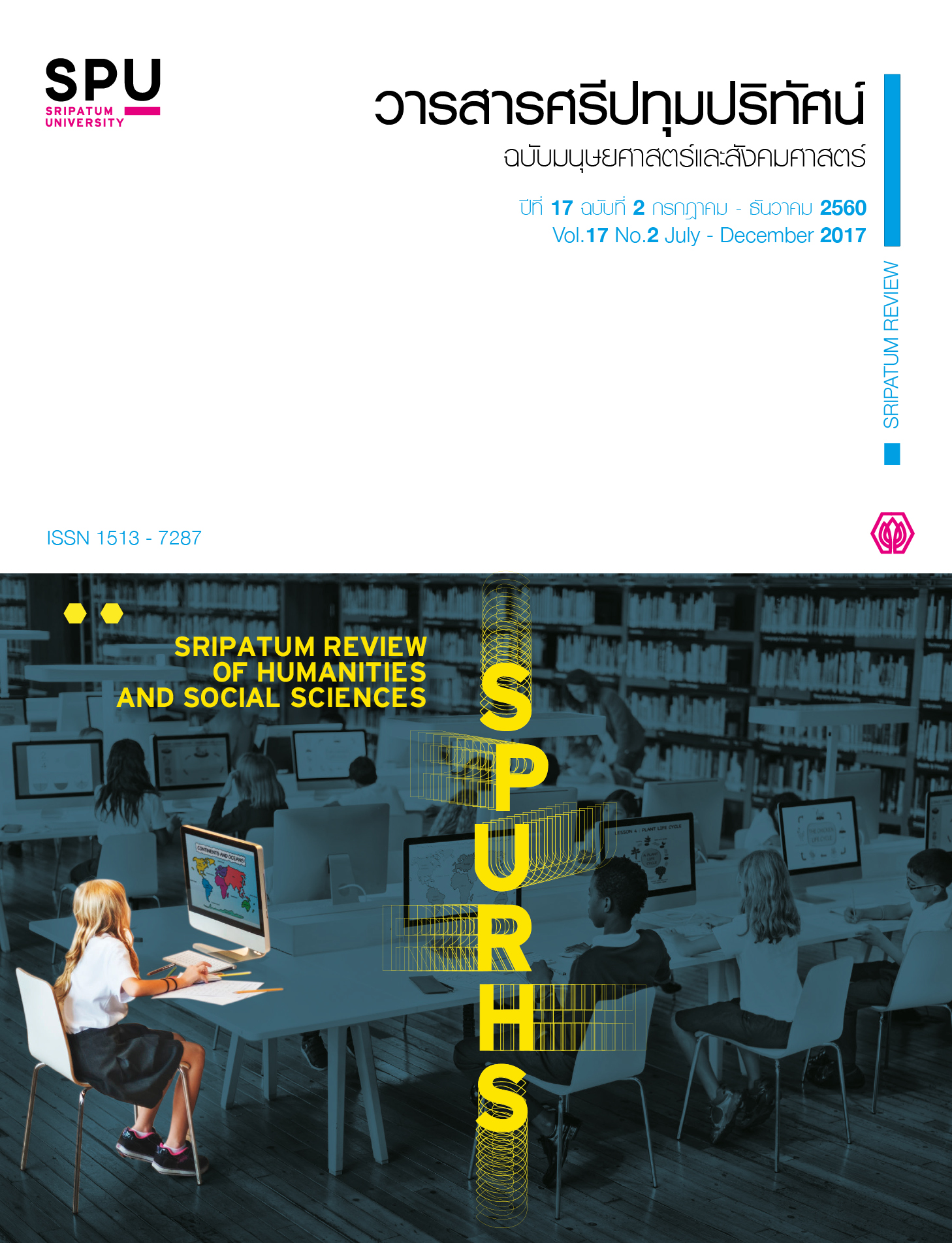A Management Model to Develop Desirable Characteristics of Students with the Use of Boy Scout Activities
Main Article Content
Abstract
The main objective of this research was to present a management model to develop effective desirable characteristics of students with utilization of Boy Scout activities. The research process comprised 4 steps: (1) the review of documents and research literature related to theories and concepts of management to develop desirable characteristics of students and the interviews of 7 educational administration experts; (2) the development of a drafted management model to develop desirable characteristics of students with utilization of Boy Scout activities and then submitting the drafted model for verification and improvement by 10 experts who participated in a focus group discussion; (3) the pilot try-out of the improved model in Ban Mueang Bang School, Wang Ban sub-district, Lom Kao district, Phetchabun province during the 2014 - 2015 academic years, and then evaluating the teachers’ and students’ satisfaction with the model; and (4) the revision and improvement of the model based on results of the try-out and recommendations of 17 experts involving in a focus group discussion.
The research results revealed that (1) the developed management model to develop effective desirable characteristics of students with utilization of Boy Scout activities was composed of five main components, namely, the environmental context of the school, the mental study activities to enhance positive intelligence, the good relationship, the realization of self-values and values of the others, and the self-conduct as a good model; (2) there were 20 sub-components of the model; and (3) the total number of 147 Boy Scout activities to develop eight desirable characteristics of the students, namely, (3.1) the love for the nation, religion, and monarchy; (3.2) honesty; (3.3) discipline; (3.4) enthusiasm for learning; (3.5) sufficient living; (3.6) work commitment; (3.7) the love for Thainess; and (3.8) public-mindedness.
Article Details
1. กองบรรณาธิการสงวนสิทธิ์ในการพิจารณาและตัดสินการตีพิมพ์บทความในวารสาร
2. บทความทุกเรื่องจะได้รับการตรวจสอบทางวิชาการโดยผู้ทรงคุณวุฒิ แต่ข้อความและเนื้อหาในบทความที่ตีพิมพ์เป็นความรับผิดชอบของผู้เขียนแต่เพียงผู้เดียว มิใช่ความคิดเห็นและความรับผิดชอบของมหาวิทยาลัยศรีปทุม
3. การคัดลอกอ้างอิงต้องดำเนินการตามการปฏิบัติในหมู่นักวิชาการโดยทั่วไป และสอดคล้องกับกฎหมายที่เกี่ยวข้อง
References
ดำรัสวิทย์ ปทุมมาศ. 2555. ศึกษาปัญหาการจัดกิจกรรมลูกเสือในโรงเรียนสังกัดจังหวัดเพชรบูรณ์. เพชรบูรณ์: มหาวิทยาลัยราชภัฏเพชรบูรณ์.
พระครูประโชติ จันทวิมล. 2555. การส่งเสริมคุณธรรมจริยธรรมนักเรียนโรงเรียนนวมินทราชินูทิศหอวัง นนทบุรี. กรุงเทพฯ: มหาวิทยาลัยมหาจุฬาลงกรณ์ราชวิทยาลัย.
พรทิพย์พา คล้ายกมล. 2554. แนวทางพัฒนาการบริหารงานลูกเสือสามัญ รุ่นใหญ่ในสถานศึกษาสังกัดสำนักงานเขตพื้นที่การศึกษาประถมศึกษากำแพงเพชร เขต 2.วารสารวิจัยและพัฒนามหาวิทยาลัยราชภัฎเลย,(20), หนึ่ง-หนึ่งโรงเรียนบ้านเหมืองแบ่ง. 2557. รายงานการประเมินตนเองโรงเรียนบ้านเหมืองแบ่ง ปีการศึกษา 2557. เพชรบูรณ์: อัดสำเนา.
เรวัตน์ วัฒนไชย. 2552. ความตระหนักในคุณค่าแห่งตน. กาฬสินธุ์: เขาพระอินทร์.
วิเชียร ไชยบัง. 2558. จิตศึกษากับการพัฒนาปัญญาภายใน. พิมพ์ครั้งที่ 2.บุรีรัมย์:โรงเรียนนอกกะลา.
สำนักงานคณะกรรมการการศึกษาขั้นพื้นฐาน. 2557. มาตรการและแนวทางยกระดับคุณภาพการเรียนการสอนและการจัดกิจกรรมลูกเสือในสถานศึกษา. กรุงเทพฯ: สำนักงานพระพุทธศาสนาแห่งชาติ.
Bertalanffy,L.V. 1983. The Humanistic concern of General System Theory. University Press of Colorado.
Sesow,F.W. and Vancleaf, 1988. Social Studies and Youth Organizations : Partners in the Development of Civic Responsibility and Action. Chicago: Based on a Paper Presented at a Meeting of the National Council for The Social Studies.


